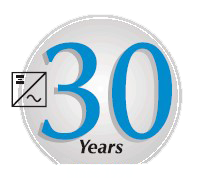Industrial power inverters are designed to change DC power from a battery unit into traditional AC power that can be utilized to operate numerous devices, appliances, machines, and tools within the industrial setting. Additionally, these inverters have the capability of delivering ample power to mobile devices, computer systems, and back up emergency power units. If you are reading this, it is likely that you have purchased the industrial power inverters that you require for your business and are ready to embark on the installation process. Prior to beginning, learn about the 3 most important considerations that should be made prior to installation by continuing reading this brief guide.
1. Do You Have the Right Size?
Prior to the placement of the inverters in the industrial setting, you must determine what size inverter you need. You may do this by considering how your business will use the product and the power usage requirements. The smallest of inverters are 300 watts. Large-scale inverters are typically about 5,000 watts. You will need to analyze the devices or products that will be placed on the inverter to determine the wattage rates of each. Once you have these numbers added up, you will be able to determine how many watts the inverters that you place in your business will need to be.
2. Do You Need Sine or a Modified Sine Wave Inverter?
The next consideration that should be made is what type of industrial power inverters you require. Currently, there are two types. One of the sine wave and the other is the modified sine wave. If you will be running sensitive types of electronics and devices, the sine wave is the best option. For less sensitive items, the modified sine wave industrial power inverter is the ideal choice.
3. Is the Inverter Regulatory Listed?
The last factor that you should consider prior to installing industrial power inverters is whether or not the device is identified as “Regulatory Listed”. Yes, these are much more expensive; however, they are much more reliable than those that do not hold this designation. When listed as such, you can rest assured that the device has met highly strict requirements in terms of vibration, environmental tests, and heating/thermal tests.
For more information on industrial power inverters, view our blog at: https://exeltech.com/blog/




